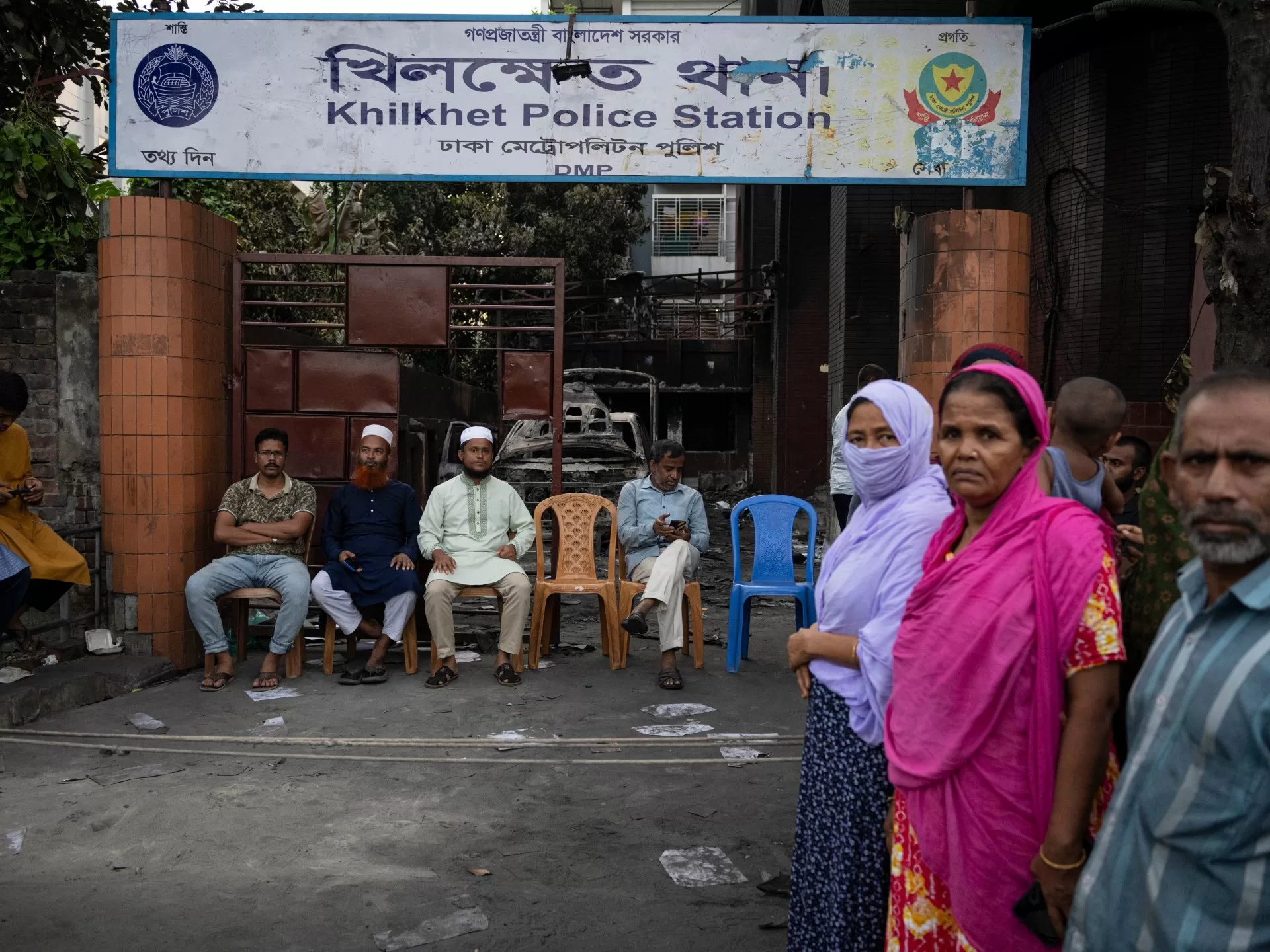Student leaders in Bangladesh have asked supporters to guard Hindu temples and churches as diplomats and rights groups expressed concerns over reports of attacks on minority groups after the prime minister resigned amid a national uprising.
There was euphoria – but also looting and the ransacking of national monuments and government buildings – after Prime Minister Sheikh Hasina fled the country on Monday following weeks of deadly demonstrations against her government.
Opposition politicians on Tuesday called for the protection of all Bangladeshis “irrespective of religion and politics, from discriminatory violence”, amid reports of assaults on temples and churches.
Students were seen guarding Hindu temples and other places of worship in social media footage and images verified by Al Jazeera’s fact-checking agency Sanad, including in Chittagong, the country’s second-largest city.
“Miscreants are systematically attacking various public and private institutions to prove the students’ movement wrong,” Chittagong University coordinator, Russell Ahmed, told the Bangla Tribune newspaper.
“To prevent any kind of attack on the places of worship, temples and churches of different religions in Chittagong, we have made a committee in each district … to keep watch from Monday evening,” he said.
In the capital, Dhaka, a Muslim man was seen guarding the Dhakeshwari Temple, a Hindu place of worship.
“A Muslim man spotted praying salah in front of Dhakeswari temple… and protecting the hindu temple from all the evil people who are trying to stop the reform by attacking minorities and public properties,” Saif Ahmed, the social media manager of the Bangla Tigers cricket team, shared on X.
Both Muslim and Hindu neighbours were guarding and protecting the temple, the Dhaka Tribune newspaper reported.
Students who led the protests against Hasina over government job quotas they said were discriminatory also urged people not to target minority communities in the Muslim-majority country of 170 million people.
Nahid Islam, a student at Dhaka University and one of the protest organisers, told local media: “There is no grouping or division among us. We are against any kind of religious incitement, sabotage or division. We will prevent any such attempts.”
This is Real News Tonight in #Bangladesh
Everyone is coming forward to protect the temple in different places.
1. Hathazari Kali Mandir is guarded by the students of Hathazari Madrasa.
2. A team is on guard to protect the Ramakrishna Mission in Faridpur!
3. We are general… pic.twitter.com/nH7eGcxHCs
— Nirab (@Nirab23) August 5, 2024
The main opposition Bangladesh Nationalist Party (BNP) urged people to exercise restraint in what it said was a “transitional moment on our democratic path”.
“It is our duty to protect all Bangladeshis, irrespective of religion and politics, from discriminatory violence, and not to harass any particular community, create division, or seek vengeance. Muslims, Hindus, Christians, Buddhists, believers, atheists – no one will be left behind or be prejudiced on our democratic path; together, we are all proudly Bangladeshis,” Tarique Rahman, the BNP’s acting chair, wrote on X.
Diplomats concerned
Monday was the deadliest day of unrest since the protests erupted last month, with at least 122 people killed.
“Houses and shops of minority people were attacked, vandalised and looted, at least 97 places on Monday and Tuesday,” Rana Dasgupta, general secretary of Bangladesh Hindu Buddhist Christian Unity Council, said in a statement, the AFP news agency reported.
“Such attacks on minorities are against the fundamental spirit of the anti-discrimination student movement,” Transparency International Bangladesh (TIB) head, Iftekharuzzaman, told AFP.
India’s Foreign Minister S Jaishankar on Tuesday said the country was “monitoring the situation with regard to the status of minorities”, adding that the Indian government would “remain deeply concerned till law and order is visibly restored”.
The United States embassy in Dhaka called for “calm”, in a post on X.
“We are concerned about reports of attacks on religious minorities and religious sites in Bangladesh,” it said, a message echoed by European Union diplomats.
EU heads of mission “are very concerned about incoming reports of multiple attacks against places of worship and members of religious, ethnic and other minorities in Bangladesh”, EU Ambassador to Bangladesh Charles Whiteley posted on X.
